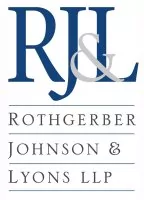As employers search for new ways to control the increasing cost of providing health-care coverage to their employees, they need to understand the alphabet soup of health-care reimbursement arrangements available under existing law. An FSA is a flexible spending arrangement with a "use it or lose it" feature that is not portable; an HRA is a health reimbursement arrangement funded solely by employer contributions that may be rolled from one year to the next but is not portable; and an HSA is a health savings account with employee and/or employer contributions that may be rolled from one year to the next and that is completely portable. Each type of arrangement has unique requirements and features that must be evaluated in determining what program will best meet the needs of the employer and its employees. In some situations, a combination of arrangements may provide the best results. However, before implementing a program that includes an HSA, it is important to consider the interaction of the HSA eligibility requirements with the other types of reimbursement arrangements.
Only "eligible individuals" may contribute to an HSA. To be eligible the individual must be covered by a high-deductible health plan (HDHP) and may not participate in another health plan that is not an HDHP that provides overlapping coverage with the HDHP. While this definition of eligibility is restrictive, it does leave open the opportunity to pair an FSA or HRA with an HSA in certain situations.
"Permitted coverage" may be offered to individuals contributing to an HSA in addition to the HDHP. Permitted coverage may include coverage such as accident, disability, dental care, or vision care. A "limited-purpose FSA or HRA" that provides reimbursement for permitted coverage will not make an individual ineligible to contribute to an HSA. In addition, a limited-purpose HRA may provide reimbursement or payment for "permitted insurance," such as coverage for a specific disease or that provides a fixed amount per day during hospitalization. Further, if an FSA or HRA is designed so that no reimbursement will be made prior to the satisfaction of the minimum HDHP annual deduction (a "post-deductible" FSA or HRA), the arrangement may cover other health-care expenses as well.
The arrangements described above may be combined. For example, an employer may offer a post-deductible FSA and a limited-purpose HRA without impacting an individual's ability to contribute to an HSA. However, in no case may an individual be reimbursed for the same medical expense by more than one account or arrangement. If a specific expense is covered by an HSA and an HRA or FSA, the HRA or FSA may reimburse the expense as long as the individual certifies he or she will not seek reimbursement under any other arrangement, including an HSA.
It should be noted that an individual may continue to make contributions to an HSA during any period that he or she is covered by a "suspended HRA." To suspend an HRA, an individual must make an election prior to the beginning of the HRA coverage period to forego reimbursements except for preventive care, permitted insurance, or permitted coverage. When the suspension period ends, the individual will no longer be eligible to make contributions to an HSA. Similarly, if an individual is a participant in a retirement HRA that only reimburses health-care expenses incurred after retirement, he or she may contribute to an HSA before retirement. After retirement when the retirement HRA begins to reimburse health-care expenses, the individual will no longer be eligible for purposes of contributing to an HSA.
The availability of the various health-care reimbursement arrangements allows employers to choose an option that comes close to meeting the needs of their employees. A combination of arrangements may provide just enough additional flexibility to meet all the needs of a diverse employee group.
Sandy Murphy is special counsel in RJ&L's Denver office where she practices in the area of employee benefits planning, compliance, and administration. She assists employers with all types of pension and welfare benefits plan issues involving fiduciary responsibility, plan administration, benefit claims, and federal and state tax and labor law consequences. Ms. Murphy helps clients ensure that they maximize tax benefits while complying with the many laws and regulations surrounding benefit plan administration.
The content of this article is intended to provide a general guide to the subject matter. Specialist advice should be sought about your specific circumstances.

